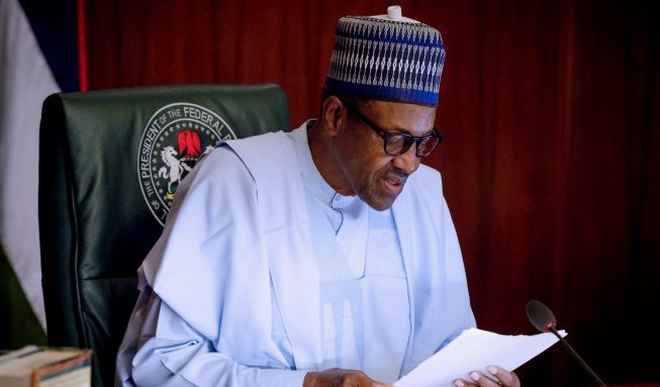FG spends N300bn on social investment programme- Presidency
The Federal Government has spent about N300 billion on the National Social Investment Programmes in the last three years. The Special Adviser to President Muhammadu Buhari on National Social Welfare Programme, Maryam Uwais said this on Tuesday in Abuja during a joint oversight visit by Senate and House Committees on Poverty Alleviation. The delegation was […]

The Federal Government has spent about N300 billion on the National Social Investment Programmes in the last three years.
The Special Adviser to President Muhammadu Buhari on National Social Welfare Programme, Maryam Uwais said this on Tuesday in Abuja during a joint oversight visit by Senate and House Committees on Poverty Alleviation.
The delegation was led by the Chairmen of the committee in the two chambers, Sen. Lawal Gumau and Alhaji Mohammed Wudil.
Uwais said the social investment programmes since inception in 2016, aimed to improve the living conditions of Nigerians through capacity building, investment and direct support.
“So far we have over 11.5 million direct beneficiaries on all our programmes. We also have about nine million indirect beneficiaries.
“Right now we have over 700,000 people on the National Social Register but the people we are paying under the Conditional Cash Transfer Scheme are about 300,000.
“This is because we select only the poorest of the poor in every community and every payment is done through their bank account, so we are able to track every kobo spent,’’ she said.
On the school feeding programme, Uwais said that the programme was currently feeding over 9.5 million pupils in 30 states and has empowered 101,000 cooks.
“We are feeding over 9.5 million children in about 56,000 schools around the country. The value chain in the school feeding programme is just amazing.
“Not only are the children coming back to school, we are seeing that they are more alert in class and absolutely happy to come to school.
“We are also seeing that farmers are smiling to the banks. This is because we need at least seven million eggs every week, over 600 cattle, 83 metric tonnes of fish and lots of fruits and vegetables,’’ she said.
Uwais said that through the Government Enterprise and Empowerment Programme (GEEP) the federal government was providing financial support to businesses at the bottom of the financial pyramid.
She mentioned Tradermoni, Farmermoni, and Marketmoni as the programmes being executed under GEEP.
“Tradermoni was created specifically for petty traders and artisans across Nigeria.
“With Tradermoni, you can receive interest-free loan starting from N10,000 and growing all the way to N100,000 as you pay back,’’ she said.
On the challenges in the delivery of social benefits, Uwais said that adequate funding remained a major setback.
“We don’t get our full funding. Only about 25 per cent of our funds have been released, so we have to find ways and means to be cost effective about our spending,’’ she said.
Uwais said the National Social Investment Office was currently leveraging on other agencies like the Central Bank of Nigeria, Nigeria Inter-Bank Settlement System, and the National Bureau of Statistics to carry out its mandate.
She commended the World Bank for the grant given to the office for Conditional Cash Transfers, and also ActionAid for its role in monitoring and evaluation of all the social investment programmes.
Earlier, Alhaji Mohammed Wudil, Chairman, House Committee on Poverty Alleviation said the visit would help the committees in making informed decisions concerning budgetary allocations to the programmes as proposed in the 2019 budget. (NAN)
